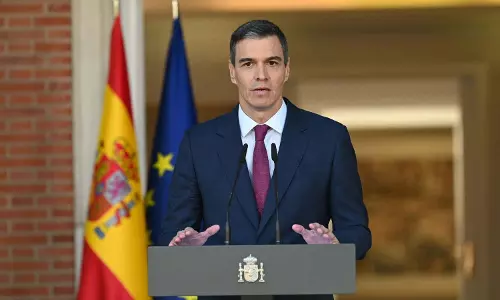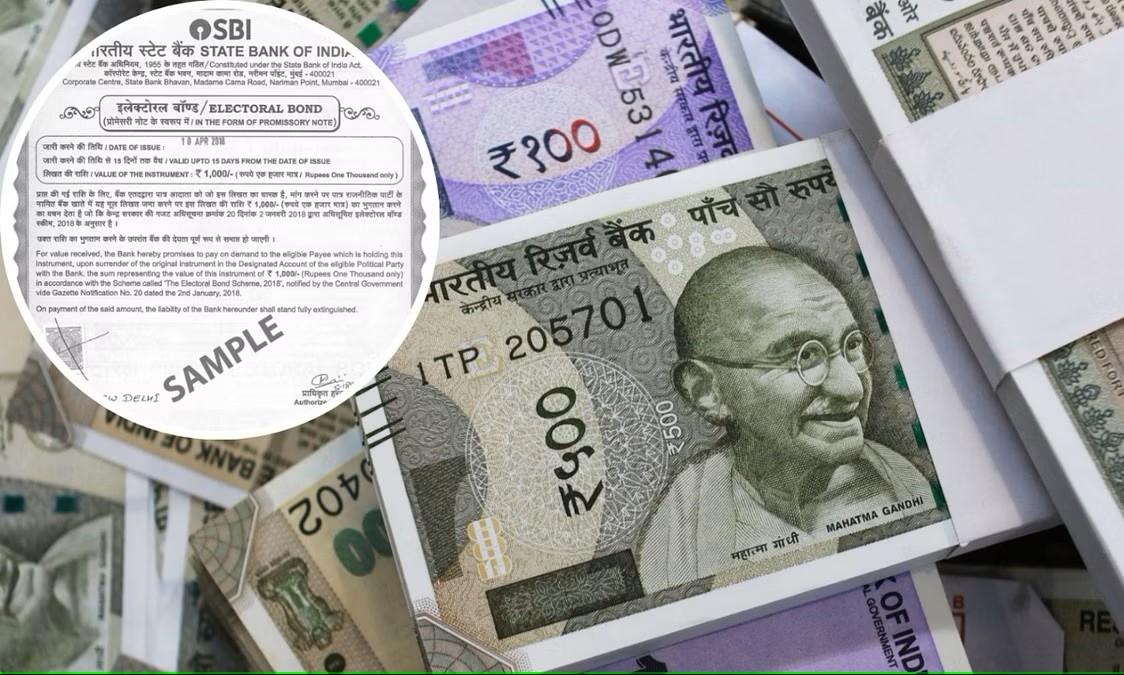
How ED linked to top buyers of the electoral bonds
text_fieldsAs the Election Commission released the details of the electoral bond schemes through which political parties sourced operational funding, it became apparent that most of the major purchasers of the bonds had either undergone action by the Enforcement Directorate or were entangled in legal controversies surrounding their economic activities.
At the heart of this controversy lies the murky world of electoral funding, where powerful businessmen with checkered pasts wield immense influence over the political landscape through their substantial purchases of electoral bonds.
Leading the charge is Future Gaming and Hotel Services Pvt Ltd, a lottery behemoth helmed by Santiago Martin, known as the 'Lottery King.' Martin's ascent from a humble labourer in Myanmar to a formidable force in the Indian lottery industry is a tale of rags-to-riches, marred by allegations of money laundering and fraudulent activities.
Despite facing intense scrutiny from enforcement agencies, including the Enforcement Directorate (ED), Future Gaming has purchased electoral bonds worth a staggering Rs 1,300 crore between 2019 and 2024, raising serious questions about the integrity of its contributions to the political process.
Close on the heels of Future Gaming is Hyderabad-based Megha Engineering and Infrastructures Ltd (MEIL), a company embroiled in controversies surrounding its involvement in government projects. Led by Krishna Reddy, MEIL's significant purchase of electoral bonds totalling Rs 1,000 crore underscores the nexus between big business and political funding, casting a shadow over its dealings with political parties.
However, what sets this scheme apart is the damning revelation that three of the top five purchasers of electoral bonds are currently under investigation by the ED and Income Tax (I-T) department. Future Gaming, Megha Engineering, and mining giant Vedanta Limited find themselves ensnared in a web of legal troubles, with allegations of financial impropriety and corruption haunting their electoral contributions.
The timing of these bond purchases is particularly alarming, with instances of companies acquiring bonds immediately after facing legal action or during ongoing investigations. Future Gaming's brazen purchase of Rs 100 crore in electoral bonds just five days after the attachment of its assets by the ED underscores the audacity with which some entities operate within the system, raising serious concerns about the efficacy of existing regulations governing political funding.
With electoral bonds providing a veil of anonymity to donors, the true extent of corporate interference in policymaking and governance remains shrouded in secrecy, eroding the very foundations of transparency and accountability upon which democracy thrives.
The involvement of other controversial entities, such as Essel Mining and Industries Ltd, Keventer Foodpark Infra Limited, and Madanlal Ltd, further muddies the waters, highlighting the pervasive nature of corporate influence in Indian politics.
Despite facing their own set of controversies and legal challenges, these companies continue to exert significant sway over the political landscape through their substantial contributions to electoral funding.
As investigations into these companies unfold, pressure mounts on regulatory authorities and political leaders to take decisive action to restore public trust in the electoral process. Calls for greater transparency in political funding and stringent measures to prevent the abuse of electoral bonds resonate loudly, demanding urgent reforms to safeguard the integrity of India's democracy.






















